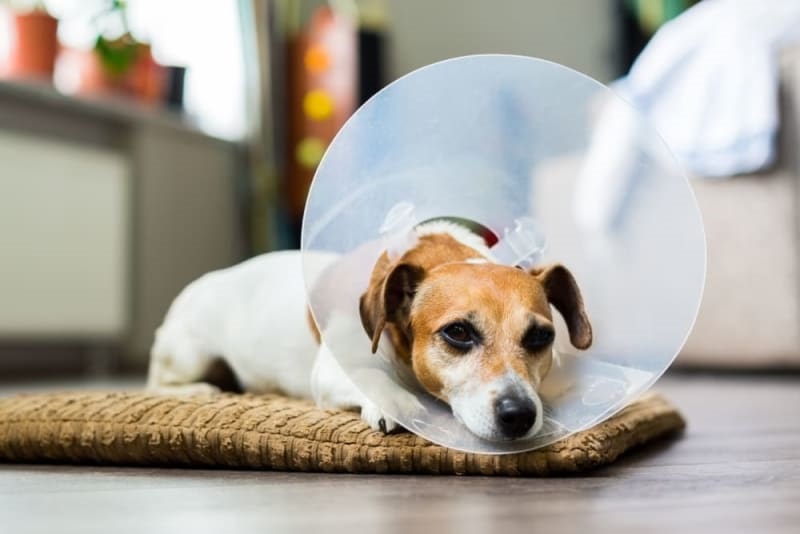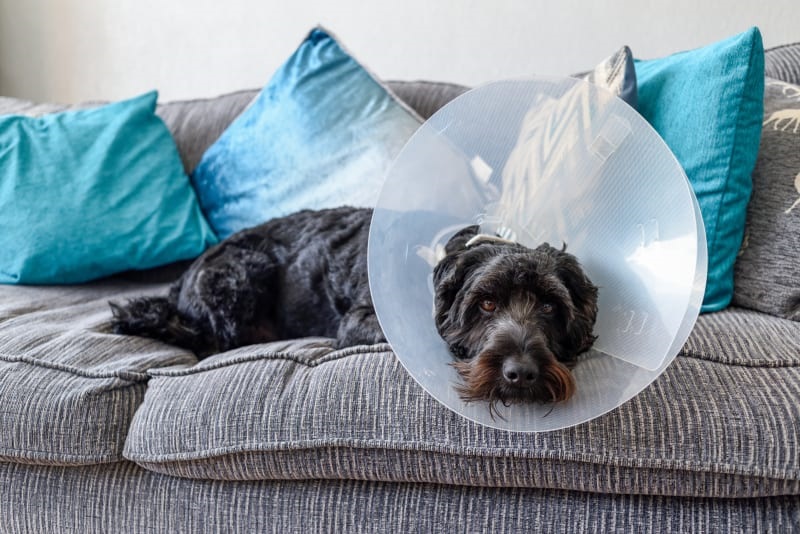Getting your dog neutered is an important step in responsible pet ownership. While the procedure has numerous benefits, it can be a stressful experience for your furry friend. As a caring pet owner, it’s essential to provide comfort and support during your dog’s recovery period.
In this article, we will explore effective ways to comfort your dog after neutering and ensure a smooth healing process. I want to point out that the content of this article comes from, https://dogguides.xyz/.
Understanding Neutering and Its Effects
Neutering is a surgical procedure that involves the removal of the testicles in male dogs. It is done to prevent reproductive functions and offers several health benefits, including reducing the risk of certain cancers and behavioral issues. However, it is a significant medical intervention that can leave your dog feeling uncomfortable and disoriented.
Creating a Safe and Comfortable Environment
After bringing your dog home from the veterinary clinic, create a calm and cozy space where they can rest and recover. Make sure the area is free from hazards and provides easy access to food, water, and a comfortable bed. Keep the environment quiet and minimize interactions with other pets or children, allowing your dog to relax and heal.
Providing Pain Relief and Medication
Your veterinarian may prescribe pain medication to manage your dog’s discomfort after neutering. Follow the prescribed dosage and schedule diligently. Additionally, consider using a comfortable, well-fitting cone or an alternative protective garment to prevent your dog from licking or biting the surgical site.
Maintaining a Balanced Diet
A nutritious diet is essential for your dog’s recovery. Consult with your veterinarian about the appropriate post-neutering diet plan. Provide high-quality dog food that supports healing and doesn’t cause digestive issues. Avoid overfeeding, as weight gain can delay the recovery process.
Monitoring and Managing Behavior Changes
Neutering can cause temporary changes in your dog’s behavior due to hormonal adjustments. Some dogs may become more lethargic, while others may exhibit increased anxiety or restlessness. Observe your dog closely and offer reassurance and extra attention during this period of emotional adjustment.
Gentle Exercise and Physical Activity
While rest is crucial for healing, light exercise can be beneficial for your dog’s overall well-being. Take your dog for short, controlled walks on a leash, allowing them to stretch their legs and get fresh air. However, avoid vigorous activities or strenuous exercise until your veterinarian gives the green light.
Engaging Mental Stimulation
To prevent boredom during the recovery period, engage your dog in mentally stimulating activities. Provide interactive toys, food puzzles, or treat-dispensing toys to keep their mind occupied. Mental stimulation can help divert their attention from any discomfort and aid in a faster recovery.
Regular Veterinary Check-ups
Follow-up appointments with your veterinarian are crucial to monitor your dog’s progress and ensure proper healing. Attend scheduled check-ups and discuss any concerns or observations you have. Your veterinarian can provide valuable guidance tailored to your dog’s specific needs.
Offering Comfort and Affection
Your dog will benefit from your love and attention during their recovery. Spend quality time with them, petting and cuddling gently. Talk to them in a soothing tone to provide reassurance and let them know they are safe. Your comforting presence will help alleviate any anxiety or stress they may be experiencing.
Patience and Understanding
Remember that every dog heals at their own pace. Be patient and understanding throughout the recovery process. Your dog may exhibit temporary changes in behavior, appetite, or energy levels. With time, proper care, and your unwavering support, they will gradually return to their usual happy and healthy selves.
Conclusion
Neutering is an important procedure for the overall well-being of your dog. By following these guidelines and providing comfort and support, you can help your furry companion through the recovery process. Remember, your presence, love, and attention are vital in helping your dog feel safe and secure during this time.
FAQs
- Is neutering painful for dogs?
The neutering procedure is performed under anesthesia, so your dog won’t experience pain during the surgery. However, they may experience discomfort during the recovery period, which can be managed with pain medication prescribed by your veterinarian.
- How long does it take for a dog to recover after neutering?
The recovery time can vary depending on the dog’s age, size, and overall health. Typically, it takes around 10 to 14 days for the surgical site to heal, but complete recovery may take a few weeks. Follow your veterinarian’s instructions and monitor your dog’s progress during this period.
- Can I bathe my dog after neutering?
It’s generally recommended to avoid bathing your dog for at least ten days after neutering to prevent any complications. However, consult with your veterinarian for specific instructions based on your dog’s condition.
- Should I restrict my dog’s activity after neutering?
While your dog needs rest to heal, it’s also important to engage them in light exercise and mental stimulation. Follow your veterinarian’s guidelines regarding activity restrictions and gradually increase exercise as your dog recovers.
- Can neutering change my dog’s behavior?
Neutering can cause temporary changes in behavior due to hormonal adjustments. Some dogs may become more calm and less aggressive, while others may experience increased anxiety or restlessness. These changes are usually temporary and tend to normalize over time.

